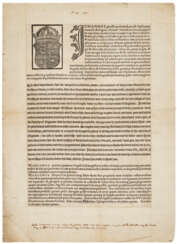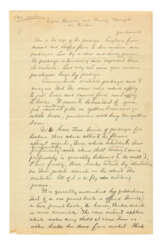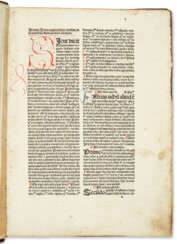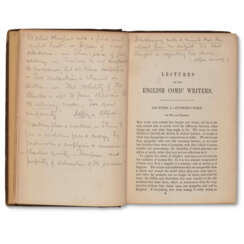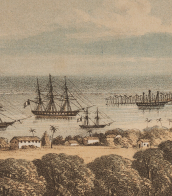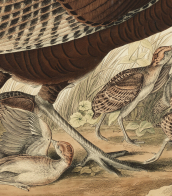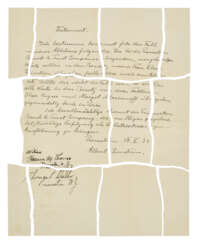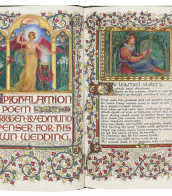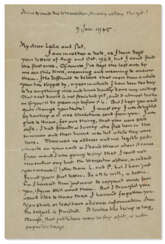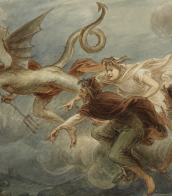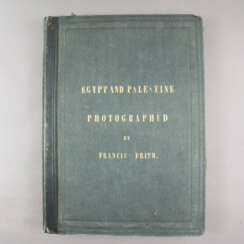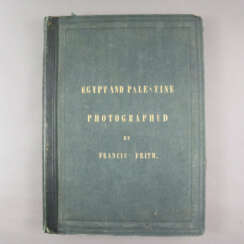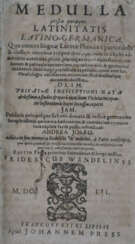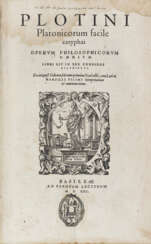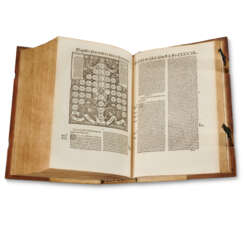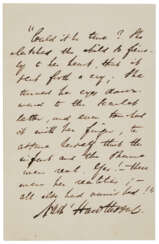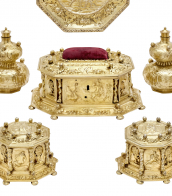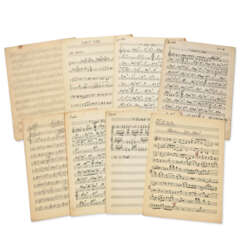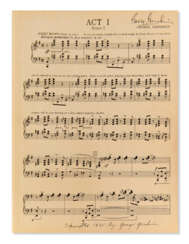books, manuscripts and writings


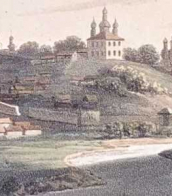
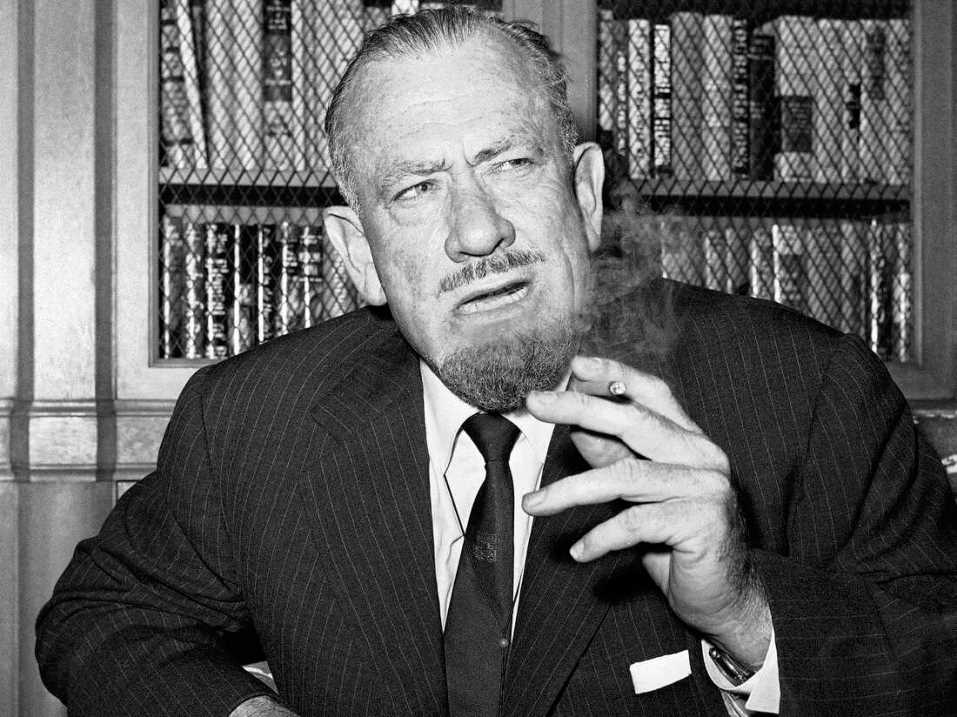


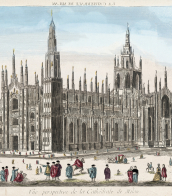

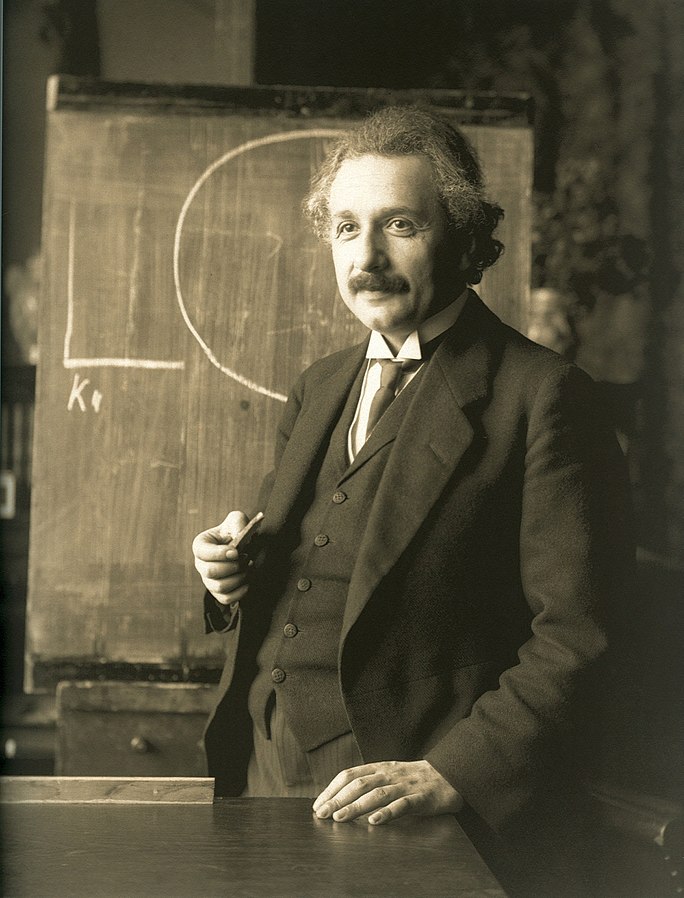
Albert Einstein was a German-born theoretical physicist, widely acknowledged to be one of the greatest and most influential physicists of all time. Einstein is best known for developing the theory of relativity, but he also made important contributions to the development of the theory of quantum mechanics. Relativity and quantum mechanics are together the two pillars of modern physics. His mass–energy equivalence formula E = mc2, which arises from relativity theory, has been dubbed "the world's most famous equation". His work is also known for its influence on the philosophy of science. He received the 1921 Nobel Prize in Physics "for his services to theoretical physics, and especially for his discovery of the law of the photoelectric effect", a pivotal step in the development of quantum theory. His intellectual achievements and originality resulted in "Einstein" becoming synonymous with "genius".
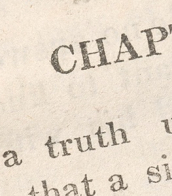


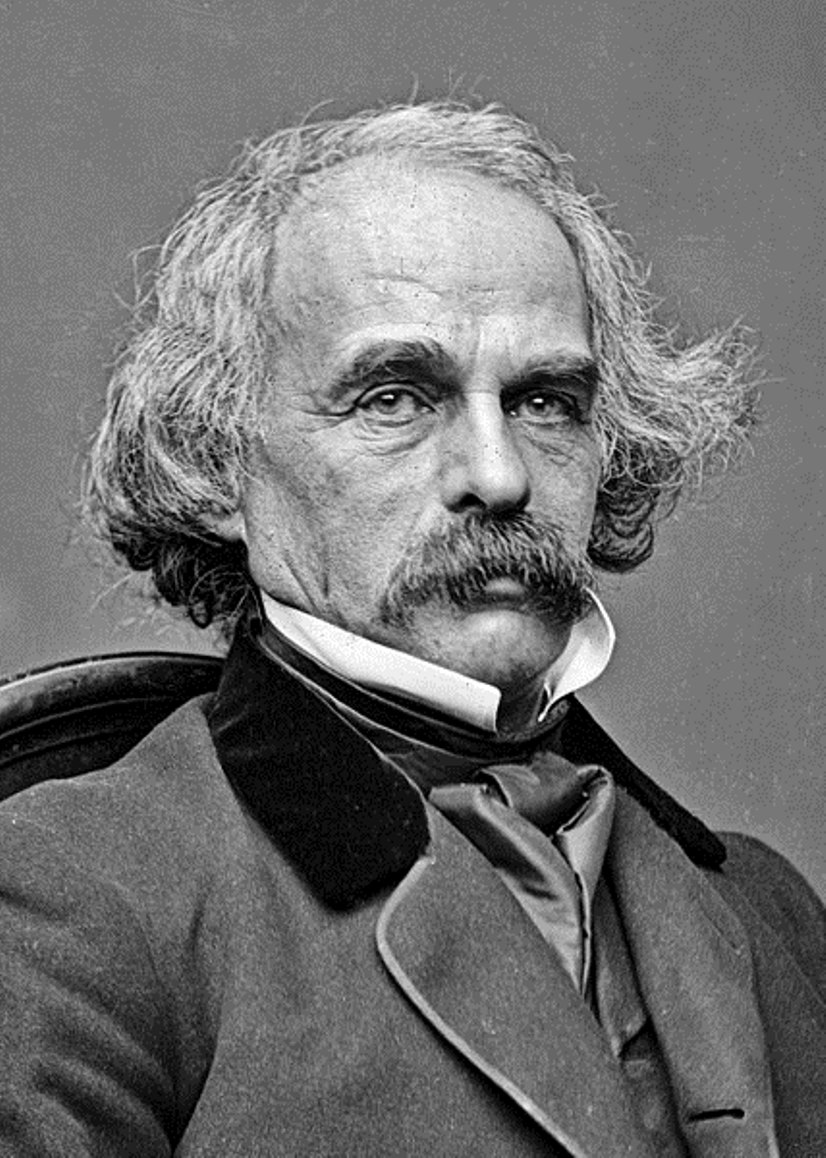
Nathaniel Hawthorne is an American writer and author.
Hawthorne is a recognized short story writer and a master of allegorical and symbolic narrative. One of the first fiction writers in American literature, he is best known for his works The Scarlet Letter (1850) and The House of Seven Gables (1851). Hawthorne's artistic works are considered part of the American Romantic movement and, in particular, of so-called dark Romanticism, a popular mid-19th-century fascination with the irrational, the demonic, and the grotesque.
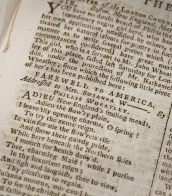
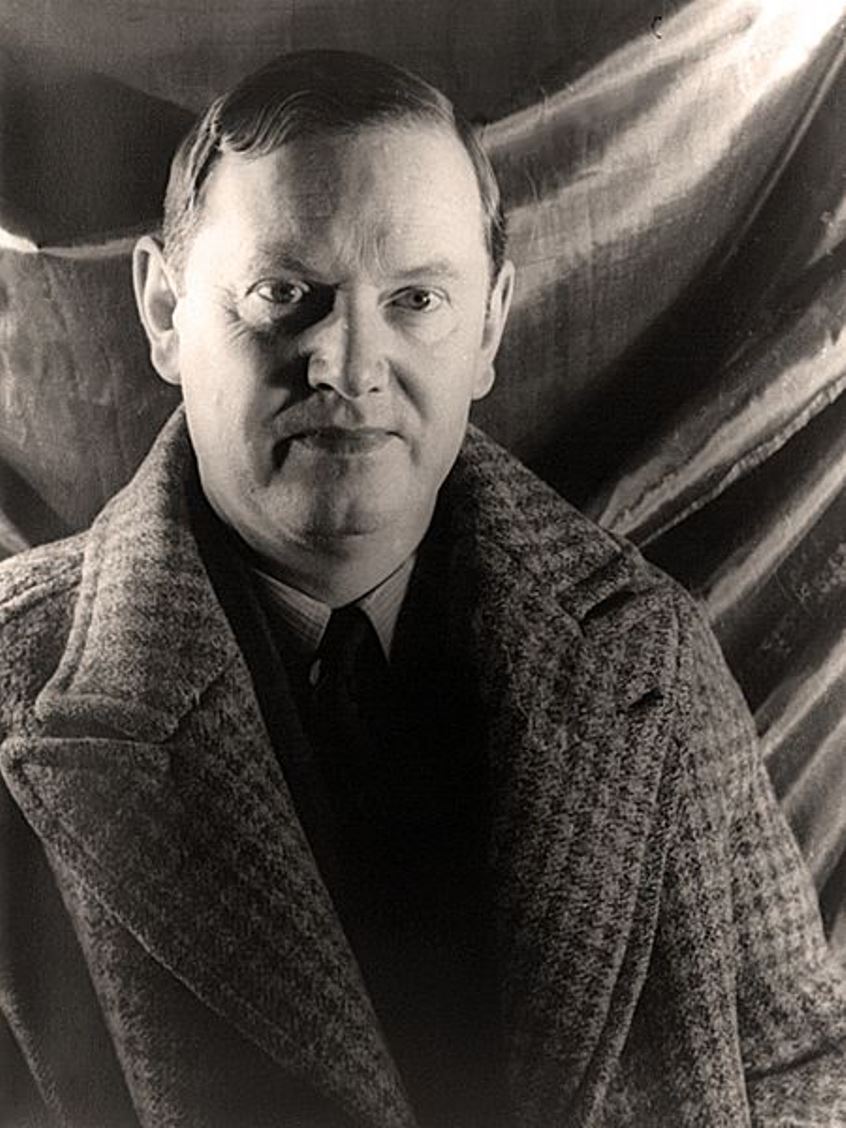
Evelyn Waugh, full name Arthur Evelyn St. John Waugh, was a British satirical writer, travel writer and historian.
Evelyn Waugh studied at Lancing College in Sussex and at Hertford College in Oxford. He then began traveling and writing, soon earning a reputation as a witty satirist. He visited Ethiopia and the Belgian Congo, and traveled to South America. His works are almost always based on personal experience; notable among the early ones are Decline and Fall (1928), Nasty Bodies (1930), Black Mischief (1932), and others.
During World War II, Evelyn Waugh served in the Royal Marines and the Royal Horse Guards. Written at this time, the novel "Return to Brideshead" (1945) is about an aristocratic English Roman Catholic family. In the trilogy "Men in Arms" (1952), "Officers and Gentlemen" (1955) and "Unconditional Surrender" (1961), the author conducted a serious analysis of the events of World War II, as an eternal struggle between good and evil, civilization and barbarism. Later on these works were filmed television series.
Evelyn Waugh also left a significant trace in journalism and literary criticism, he is considered one of the finest stylists in English prose of the XX century.
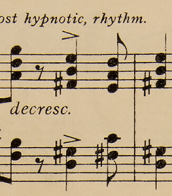

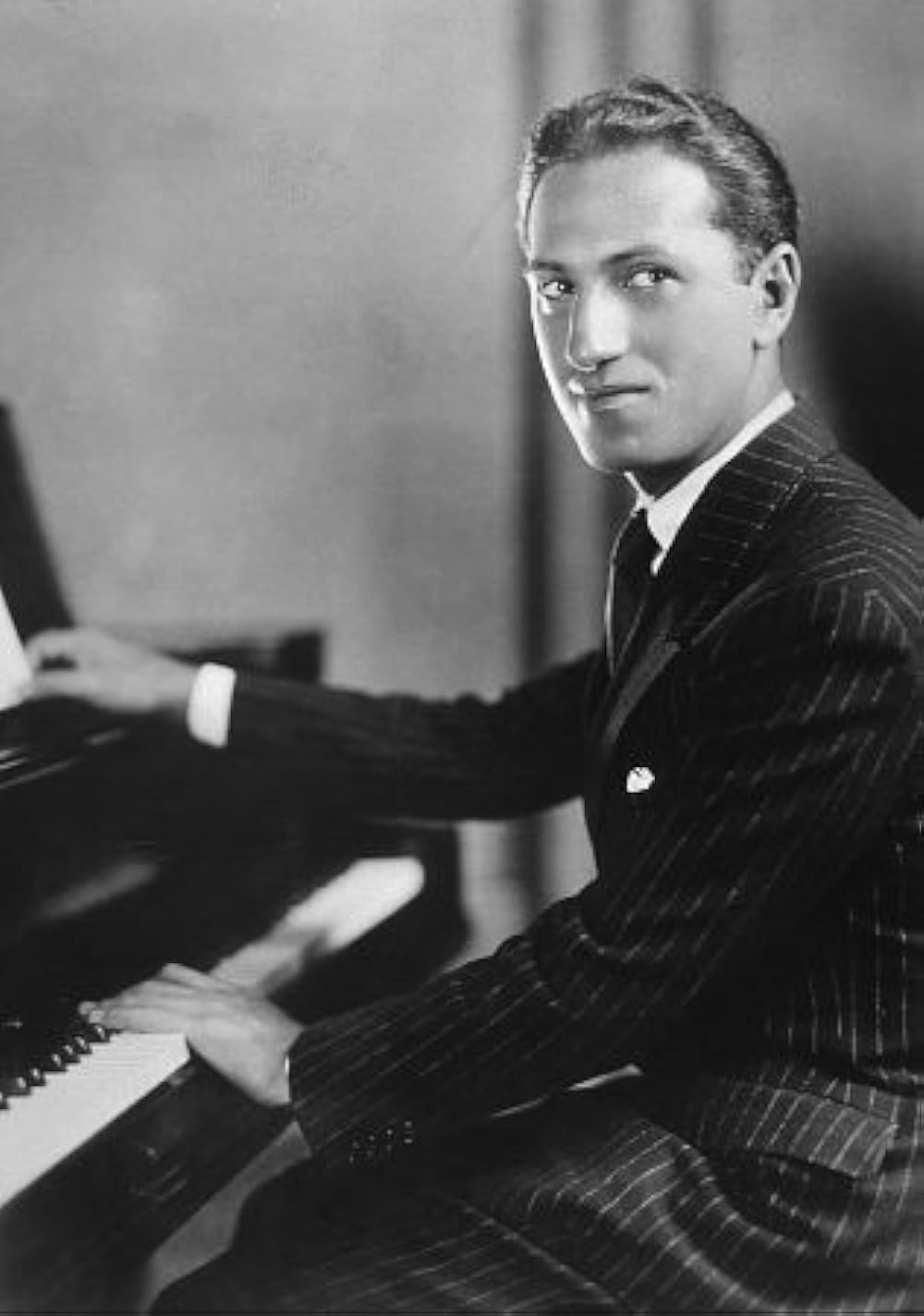
George Gershwin, born Jacob Gershwin, is an American composer and pianist.
George's parents emigrated from Russia to the United States in 1891, and he was about 12 years old at the piano, becoming virtually self-taught. Gershwin published his first song in 1916, but it was Swanee, written by a 20-year-old Gershwin in 1918, that made him famous. The income he received for it allowed Gershwin to concentrate on musical theater. In the 1920s, however, George, along with his older brother Ira, were major songwriters and hit songwriters on Broadway. The lyrics for all of Gershwin's films were written by Ira Gershwin, as were the lyrics for most of his musicals, although early in his career Gershwin worked with other lyric writers, including Irving Caesar and Buddy De Silva.
The Gershwin brothers' first Broadway hit was the song Lady Be Good in 1924. In his songs, Broadway shows, and movie scores, composer George Gershwin achieved unprecedented success with his masterful mastery of jazz, classical, and popular music styles. These include "Rhapsody in Blue" in 1924, "Concerto in F" in 1925, "An American in Paris" in 1928, and "Second Rhapsody" in 1931. Between 1919 and 1935. Gershwin wrote music for 31 musicals, one of which - Of Thee I Sing - in 1932 became the first musical to win the Pulitzer Prize for Dramaturgy. Gershwin's songs have also been used in numerous films and award-winning musicals over the years.
The opera Porgy and Bess, co-written with Dubose, Dorothy Hayward, and Ira Gershwin, was the Gershwin brothers' most ambitious project, combining memorable songs with drama. It was first performed in Boston in 1935 and was made into a movie in 1959.
In 1937, at the age of only 39, the brilliant composer died of a brain tumor. George Gershwin was at the height of his career, leaving a significant and lasting mark on the world of classical music. Today, his orchestral works are performed by most of the world's prestigious symphony orchestras. Ira Gershwin, who was two years older, lived 46 years after George's death.

